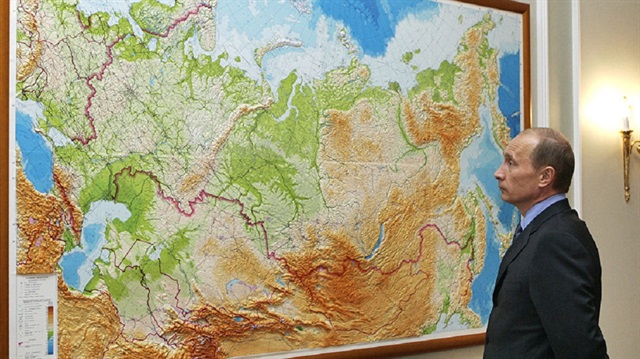
The transition into 2016 has been anything but smooth. President Putin announced a new Strategic Doctrine for Russia which reiterates that the United States and its NATO allies are Russia's main security threat. Nothing new, a careful reading may suggest, as the same wording can be found in Russia Military Doctrine of December 2014 and its Maritime Doctrine of July 2015, yet it does up the rhetorical ante as the power play in today's multilateral order seems to be tilting toward the unbalanced rather than the balanced side of the pendulum. Also, this period has seen a rapid deterioration of relations between Iran and Saudi Arabia, with serious implications for the Muslim world and global security. Iran and Saudi Arabia are important regional actors with influence extending beyond the narrow confines of their region, as their hydrocarbon reserves would attest. The deterioration of relations between Turkey and Russia continues as do the killing fields of Syria and Iraq.
This evident unbalanced multilateralism implies that there are at least three global powers present in today's world – the United States, China, and Russia. One could also account for the European Union to be of global power content but its ability to function effectively has not reached its full potential. In other words, for the EU, there is a huge distance between its expectations and its current capabilities. The same could be said of Russia, which by all indices seems to be a power in decline. Nevertheless, the question that remains unanswered is whether the aforementioned first-tier powers can work together or not. Another possible conclusion is that given the state of the EU today and the relative rise of China, we are witnessing the decline of the US-led geopolitical order as well as the emergence of a number of second-tier states vying for attention, interests, and not necessarily operating in complete harmony with each other.
The Middle East, which continues to be the most vulnerable and volatile region of the world, has its fair share of these regional actors at cross-ends with each other – Turkey, Iran, Egypt, Saudi Arabia, and Israel fit the bill. The wider Middle East is also home to a larger number of failed states such as Iraq, Syria, Yemen, Afghanistan, and even Mali; while it is experiencing an exorbitantly high number of refugees flows due to war, and economic failure. It is also the home of an amoeba-like non-state actor called the Islamic State (ISIS) which has many of the attributes of a state actor which the international effort to contain it seems to be at cross-purposes, much like the priorities of the states making up the international community. To understand its relevance, one needs only mention the countries in the wider region that have felt to varying degrees its destructive impact – Syria, Iraq, Libya, Egypt, Tunisia, Lebanon, Kuwait, Saudi Arabia, Yemen, and Afghanistan.
It is in this context that the rising tensions between Saudi Arabia and Iran need to be assessed, as their impact transcends their frontiers given both the competing theological underpinning of both the regimes in Riyadh and Teheran, their global reach as energy producers, and their relations with other regional stakeholders, including Turkey, which has good relations with both countries. Thus, in this world of ambivalence and balancing acts, and in this region of turmoil, therein lies both risk and opportunity. What does a regional power like Turkey with membership in NATO and currently at odds with Russia, a great power and key stakeholder in the Syrian conflict, do? Staying neutral seems to be the best course of action, as Ankara stands to gain economically from the gradual opening of Iranian markets while it cannot afford to upset Iran, its second largest supplier of natural gas (after Russia). Yet over time, the crisis provides an opportunity for Turkey to realign its policy interests together with those of Saudi Arabia and, paradoxically, Israel as it is in their interest (each for their own sets of reasons) to contain a resurgent Iran.
On the other hand, the aforementioned opportunity, reflects the treacherous shifting sands of the Middle East and the volatility of the international order where first rank powers find themselves increasingly at odds with each other, while the number of second-tier powers and aspiring second-tier powers grows while consensus between them becomes all the more difficult.
By Dimitrios Triantaphyllou















